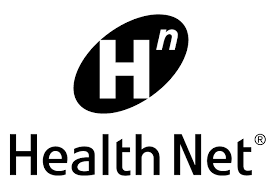small business health insurance Arizona

As an independent insurance agent with Blake Insurance Group, I understand the unique challenges that small business owners in Arizona face when it comes to providing health insurance for their employees.
Navigating the complexities of health insurance can be daunting, especially with the rising costs and myriad options available. However, offering health insurance is crucial in attracting and retaining top talent, ensuring employee satisfaction, and maintaining a competitive edge in the market.
In this guide, we will explore the various health insurance options available to small businesses in Arizona, including traditional group health plans, health sharing plans, and innovative alternatives like Health Reimbursement Arrangements (HRAs) and Direct Primary Care (DPC). We will also discuss the cost considerations, tax implications, and compliance requirements that small business owners must know.
Understanding these key factors allows you to make informed decisions that best suit your business needs and budget, ultimately fostering a healthier and more productive workforce.
As an independent insurance agent with Blake Insurance Group, I understand the unique challenges that small business owners in Arizona face when it comes to providing health insurance for their employees. Navigating the complexities of health insurance can be daunting, especially with the rising costs and myriad options available.
However, offering health insurance is crucial in attracting and retaining top talent, ensuring employee satisfaction, and maintaining a competitive edge in the market.
Blake Insurance Group
Phone: (888) 387-3687
Email: info@blakeinsurancegroup.com
Hours: Mon-Fri 9:00 am to 5:00 pm
Sat-Sun: Closed

Blake Nwosu
Owner & Principal Agent
Expertise: All personal and commercial line insurance, including auto, home, business, health, and life insurance.
License: 16117464
Understanding Small Business Health Insurance Options in Arizona
Group health insurance plans are a popular choice for small businesses in Arizona looking to provide health coverage to their employees. These plans offer a range of benefits, including comprehensive coverage, cost-sharing options, and access to a network of healthcare providers. By pooling together a group of employees, small businesses can often secure more favorable rates and coverage options than individual plans.
In Arizona, small businesses with as few as two employees can qualify for group health insurance. These plans are regulated by both federal and state laws, ensuring that they meet certain standards of coverage and affordability. Employers typically share the cost of premiums with their employees, making it a cost-effective way to offer valuable benefits.
Types of Plans Available
When selecting a group health insurance plan for your small business in Arizona, there are several types of plans to consider. Each type has its own set of features, benefits, and potential drawbacks, so it’s essential to understand the differences to make an informed decision.
**Preferred Provider Organization (PPO) Plans**
– **Flexibility**: PPO plans offer a wide network of doctors and hospitals. Employees can see any healthcare provider without a referral, though staying within the network will lower out-of-pocket costs.
– **Cost**: Typically, PPO plans have higher premiums but offer greater flexibility in choosing healthcare providers.
**Health Maintenance Organization (HMO) Plans**
– **Network**: HMO plans require employees to choose a primary care physician (PCP) and get referrals to see specialists. These plans have a more restricted network of providers.
– **Cost**: Generally, HMO plans have lower premiums and out-of-pocket costs, but less flexibility in choosing providers.
**Health Savings Account (HSA)-Qualified Plans**
– **High Deductible**: These plans are paired with high-deductible health plans (HDHPs) and allow employees to contribute to an HSA, which can be used to pay for qualified medical expenses.
– **Tax Benefits**: Contributions to HSAs are tax-deductible, and withdrawals for qualified expenses are tax-free. This can be a cost-effective option for both employers and employees.
**Exclusive Provider Organization (EPO) Plans**
– **Network**: EPO plans combine features of PPO and HMO plans. Employees must use the plan’s network of providers except in emergencies, but they do not need referrals to see specialists.
– **Cost**: EPO plans often have lower premiums than PPO plans but offer less flexibility in choosing providers.
**Point of Service (POS) Plans**
– **Hybrid**: POS plans are a hybrid of PPO and HMO plans. Employees choose a primary care physician and need referrals for specialists, but they can also see out-of-network providers at a higher cost.
– **Cost**: POS plans typically have moderate premiums and offer a balance between flexibility and cost.
Eligibility and Requirements for Small Business Health Insurance in Arizona
Minimum Number of Employees Required
Small businesses with 2 to 50 employees in Arizona are eligible to offer group health insurance plans. This range aligns with federal guidelines under the Affordable Care Act (ACA), which defines small employers as those with fewer than 50 full-time employees. Businesses with only one employee can explore options through the Small Business Health Options Program (SHOP) Marketplace.
Employer Contribution Requirements
To qualify for group health insurance, employers must meet certain contribution requirements. Specifically, employers must contribute at least 50% of the premium cost for employee-only coverage. This contribution helps make the plans more affordable for employees and ensures that the employer covers a significant portion of the premium.
Pre-Existing Condition Coverage
Under the ACA, all health insurance plans, including those offered by small businesses, must cover pre-existing conditions. No insurance plan can reject an employee, charge higher premiums, or refuse to pay for essential health benefits due to a pre-existing condition. Additionally, Arizona state regulations prohibit health plans from excluding coverage for pre-existing conditions for more than 12 months, or 18 months for late enrollees. This ensures that employees with pre-existing conditions receive the necessary coverage without facing extended waiting periods.
Benefits of Offering Health Insurance to Your Employees
Attracting and retaining top talent:
– Health insurance is one of the most sought-after employee benefits. By offering comprehensive health coverage, you can attract skilled workers and stand out from competitors who don’t provide this benefit.
– More than half of American employees say health insurance is the main workplace benefit affecting whether they like their job. This makes it a powerful tool for employee retention.
Tax advantages for employers:
– Small businesses in Arizona may be eligible for tax credits to help offset the cost of providing health insurance.
– The Small Business Health Care Tax Credit can be worth up to 50% of the costs you pay for your employees’ premiums (35% for non-profit employers).
– To qualify for this tax credit, you must have fewer than 25 full-time equivalent employees, pay average wages of about $56,000 or less per year, and cover at least 50% of your full-time employee’s premium costs.
– Health insurance premiums can be treated as a business expense, potentially reducing your overall tax burden.
Improved employee satisfaction and productivity:
– Offering health insurance demonstrates that you value your employees’ well-being, which can boost morale and job satisfaction.
– Employees with access to health insurance are more likely to seek preventive care and address health issues early, potentially reducing absenteeism and improving overall productivity.
– Employees who don’t have to worry about healthcare costs can focus more on their work, leading to increased productivity and engagement.
Understanding the Costs of Small Business Health Insurance in Arizona
Understanding the costs involved when providing health insurance for your small business in Arizona is crucial for making informed decisions. The expenses associated with group health insurance plans can vary significantly based on several factors, but having a general idea of what to expect can help you budget effectively and choose the right plan for your company.
Typically, Arizona’s small business health insurance plans start at around $250 to $300 per employee per month for basic coverage. However, this is just a starting point, and actual costs can range widely depending on the level of coverage, your group size, and your employees’ demographics.
For more comprehensive plans or those with lower deductibles and copays, you might look at costs closer to $400 to $600 per employee per month. Premium plans with extensive coverage and additional benefits could run even higher, potentially reaching $700 to $1,000 or more per employee per month.
It’s important to note that these figures represent the plan’s total cost, which is often shared between the employer and employees. Many small businesses in Arizona opt to cover 50% to 80% of the premium costs for their employees, with the employees covering the remainder through payroll deductions.
Several factors can influence the cost of your small business health insurance plan:
Group size: Generally, larger groups can negotiate better rates due to the spread of risk across more individuals.
Employee demographics: Your employees’ age and health status can impact premiums.
Coverage level: Plans with lower deductibles, more comprehensive coverage, and larger provider networks typically cost more.
Location: Healthcare costs can vary by region within Arizona, affecting insurance premiums.
Plan type: HMO plans tend to be less expensive than PPO plans, which offer more flexibility in choosing healthcare providers.
Employer contribution: The percentage of premiums covered by the employer can affect overall costs and employee participation rates.
While cost is essential, it shouldn’t be the only consideration when choosing a health insurance plan for your small business. The value of the coverage, the needs of your employees, and the long-term benefits of offering quality health insurance should all play a role in your decision-making process.
By working with an experienced insurance broker or directly with insurance providers, you can explore various options and find a plan that balances cost with the coverage your business and employees need. Additionally, you may be eligible for tax credits or other incentives to help offset the cost of providing health insurance, making it a more affordable option for your small business in Arizona.
The Role of an Independent Insurance Agent
An independent insurance agent can be an invaluable resource in navigating the complexities of choosing a health plan:
– **Expert Guidance**: Agents have extensive knowledge of the health insurance market and can provide expert advice tailored to your specific needs and budget.
Access to Multiple Carriers: Independent agents work with multiple insurance carriers, allowing them to offer a wide range of options and help you compare plans effectively.
– **Personalized Service**: Agents can offer personalized service, including helping you understand the fine print of different plans, assisting with the enrollment process, and providing ongoing support for any issues that arise.
Compliance and Administration
ERISA, COBRA, and Other Regulatory Requirements
**ERISA (Employee Retirement Income Security Act)**:
– **Overview**: ERISA sets minimum standards for most voluntarily established pension and health plans in private industry to protect individuals in these plans.
– **Requirements**: Employers must provide plan information to participants, including important information about plan features and funding. They must also establish a grievance and appeals process for participants to get benefits from their plans and give participants the right to sue for benefits and breaches of fiduciary duty.
**COBRA (Consolidated Omnibus Budget Reconciliation Act)**:
– **Overview**: COBRA requires employers with 20 or more employees to offer continuation coverage to employees and their families after certain qualifying events, such as job loss, reduction in hours, or other life events.
– **Mini-COBRA**: Arizona has its mini-COBRA law for employers with fewer than 20 employees. This law requires small employers to offer continuation coverage similar to federal COBRA but with some differences, such as the duration of coverage and specific notification requirements.
**Other Regulatory Requirements**:
– **Affordable Care Act (ACA)**: Employers with 50 or more full-time employees must provide affordable health insurance that meets minimum essential coverage standards or face penalties. Small businesses with fewer than 50 employees are not required to provide health insurance but may benefit from tax credits if they do.
– **State-Specific Regulations**: Arizona requires health insurers to offer at least one health plan to small employers under the “guaranteed issue” requirement, ensuring access to group health insurance plans.
Enrollment Periods and Procedures
**Open Enrollment**:
– **Timing**: Open enrollment occurs annually between November and December. This is when employees can sign up for new health plans or change their existing plans.
– **Communication**: Employers should notify employees well before the open enrollment period, providing details about available plans, changes in coverage, and any new benefits.
**Special Enrollment Periods**:
– **Qualifying Life Events**: Employees can enroll outside of the open enrollment period if they experience qualifying life events such as marriage, birth of a child, loss of other health coverage, or changes in residence.
– **Notification**: Employers must inform employees about their rights to special enrollment periods and the necessary steps to take advantage of these opportunities.
Employee Communication and Education
**Effective Communication**:
– **Plan Details**: Provide clear and comprehensive information about the health insurance plans available, including coverage options, costs, and how to enroll.
– **Regular Updates**: Keep employees informed about any changes to their health insurance plans, including changes in premiums, benefits, and provider networks.
**Educational Resources**:
– **Workshops and Seminars**: Conduct workshops or seminars to educate employees about their health insurance options, how to use their benefits, and the importance of preventive care.
– **Written Materials**: Distribute brochures, FAQs, and other written materials that explain the details of the health insurance plans and how to make the most of their benefits.
Ongoing Plan Management and Renewal Process
**Plan Management**:
– **Monitoring and Evaluation**: Regularly monitor the health insurance plan’s performance, including employee satisfaction, claims data, and overall costs. Use this information to make informed decisions about plan adjustments.
– **Compliance**: Ensure ongoing compliance with all relevant federal and state regulations, including ERISA, COBRA, and ACA requirements. This may involve regular audits and updates to plan documents.
**Renewal Process**:
Review and Compare: Before the renewal period, review the current health insurance plan and compare it with other available options. Consider factors such as cost, coverage, and employee needs.
– **Employee Input**: Gather feedback from employees about their experiences with the current plan and any changes they would like to see. Use this input to guide decisions about plan renewals or changes.
– **Timely Communication**: Notify employees about the renewal process, any changes to the plan, and important deadlines. Provide ample time for employees to review their options and make informed decisions.
Additional Benefits and Wellness Programs
In addition to standard health insurance, offering a range of ancillary benefits and wellness programs can significantly enhance the overall benefits package for your small business in Arizona. These additional offerings can improve employee satisfaction, health outcomes, and productivity. Here’s a detailed look at some key additional benefits and wellness programs:
Dental, Vision, and Other Ancillary Benefits
**Dental Insurance**:
– **Coverage**: Dental insurance typically covers preventive care (e.g., cleanings, exams), basic procedures (e.g., fillings, extractions), and major procedures (e.g., crowns, bridges). Some plans also offer orthodontic coverage.
– **Importance**: Providing dental insurance can help employees maintain good oral health, linked to overall health and well-being. It can also reduce absenteeism due to dental issues.
**Vision Insurance**:
– **Coverage**: Vision insurance usually covers routine eye exams, prescription glasses, contact lenses, and sometimes discounts on corrective surgeries like LASIK.
– **Importance**: Vision benefits are essential for employees who need corrective lenses and can help detect early signs of eye conditions and other health issues.
**Other Ancillary Benefits**:
Life Insurance: Offering group life insurance can provide financial security for employees’ families in the event of an untimely death.
– **Disability Insurance**: Short-term and long-term disability insurance can protect employees’ income if they cannot work due to illness or injury.
– **Critical Illness and Accident Insurance**: These plans provide lump-sum payments to cover expenses related to serious health conditions or accidents, offering additional financial protection.
Health Savings Accounts (HSAs) and Flexible Spending Accounts (FSAs)
**Health Savings Accounts (HSAs)**:
– **Eligibility**: HSAs are available to employees enrolled in high-deductible health plans (HDHPs).
– **Benefits**: Employees can contribute pre-tax dollars to an HSA to pay for qualified medical expenses, including deductibles, copays, and prescriptions. HSAs offer triple tax advantages: contributions are tax-deductible, earnings grow tax-free, and withdrawals for qualified expenses are tax-free.
– **Employer Contributions**: Employers can also contribute to employees’ HSAs, providing additional financial support for healthcare expenses.
**Flexible Spending Accounts (FSAs)**:
– **Eligibility**: FSAs are available to employees regardless of their health plan type.
– **Benefits**: Employees can contribute pre-tax dollars to an FSA to pay for qualified medical expenses. Unlike HSAs, FSAs have a “use-it-or-lose-it” rule, meaning funds must be used within the plan year or a grace period.
– **Dependent Care FSAs**: These accounts allow employees to set aside pre-tax dollars for dependent care expenses, such as daycare or elder care, providing additional financial relief.
Employee Wellness Initiatives and Incentives
**Wellness Programs**:
– **Components**: Wellness programs can include health screenings, fitness challenges, smoking cessation programs, weight management programs, and stress reduction workshops.
– **Benefits**: These programs promote healthy behaviors, reduce healthcare costs, and improve employee morale and productivity. They can also help identify and manage chronic conditions early.
**Incentives**:
– **Rewards**: Offer incentives such as gift cards, discounts on health insurance premiums, or additional paid time off for employees who participate in wellness programs or achieve health goals.
– **Engagement**: Incentives can increase employee participation and engagement in wellness programs, leading to better health outcomes and a more positive workplace culture.
Telemedicine and Virtual Care Options
**Telemedicine**:
– **Access**: Telemedicine provides employees with remote access to healthcare providers via phone or video calls, making it easier to receive medical advice, diagnoses, and prescriptions without visiting a doctor’s office.
– **Benefits**: Telemedicine can reduce healthcare costs, improve care access, and increase employee convenience. It is particularly beneficial for managing chronic conditions, mental health services, and minor illnesses.
**Virtual Care**:
– **Services**: Virtual care can include online consultations with specialists, remote monitoring of chronic conditions, and digital health tools for managing health and wellness.
– **Advantages**: Virtual care options can enhance the overall healthcare experience, provide timely access to care, and support employees in managing their health more effectively.
Small Business Health Insurance Companies
Blue Cross Blue Shield of Arizona (AZBlue):

Blue Cross Blue Shield of Arizona (BCBSAZ)
**Overview**: Blue Cross Blue Shield of Arizona (AZBlue) is a nonprofit health insurance company that has served Arizonans for over 80 years. It is Arizona’s largest health insurance company, with over 2 million members.
**Plans Offered**:
– **Individual & Family Plans**: Includes HMO and PPO plans, such as BlueEssentials HMO and BlueOptions PPO.
– **Small Business Plans**: Offers a variety of plans for small businesses with 2-50 employees, including HMO, PPO, and Balanced Funding Plans.
– **Medicare Plans**: Provides Medicare Advantage and Medicare Supplement plans.
– **Medicaid Plans**: Offers coverage for those eligible for Medicaid.
**Network**: AZBlue has a wide network of providers, including over 90% of doctors and hospitals in Arizona.
**Recent Developments**:
– Launched Prosano Health Solutions, a subsidiary focused on value-based care.
– Agreement with Dignity Health Yavapai Regional Medical Center to ensure continued in-network access.
Humana:

**Overview**: Humana is a leading health insurance company that offers a wide range of health plans, including individual, family, and group health insurance. Humana is known for its focus on wellness and preventive care.
**Plans Offered**:
– **Individual & Family Plans**: Includes various HMO and PPO options with different coverage levels.
– **Small Business Plans**: Provides group health insurance plans designed to meet the needs of small businesses.
– **Medicare Plans**: Offers Medicare Advantage, Medicare Supplement, and Prescription Drug Plans.
**Network**: Humana has a comprehensive network of healthcare providers, including doctors, hospitals, and specialists across Arizona.
**Special Features**:
– **Wellness Programs**: Emphasizes preventive care and wellness programs to help members maintain a healthy lifestyle.
– **Telemedicine**: Offers virtual care options for convenient access to healthcare services.
Cigna:

Cigna HealthCare of Arizona
**Overview**: Cigna HealthCare of Arizona is part of the global health insurance company Cigna, which has operated for over 200 years. Cigna serves nearly 90 million customers worldwide and offers a variety of health insurance plans in Arizona.
**Plans Offered**:
– **Individual & Family Plans**: This includes HMO plans like Cigna Connect, which offer various coverage levels, such as Bronze, Silver, and Gold.
– **Small Business Plans**: Provides health insurance solutions for small to midsize businesses with 100-499 employees.
– **Medicare Plans**: Offers Medicare Advantage and Medicare Supplement plans.
**Network**: Cigna has a strong network of healthcare providers and facilities, ensuring comprehensive coverage for its members.
**Special Features**:
– **Enhanced Care Programs**: Plans like Cigna Connect offer enhanced care for conditions such as diabetes and asthma, including $0 telehealth visits and preferred insulin coverage.
UnitedHealthcare:

UnitedHealthcare of Arizona
**Overview**: UnitedHealthcare (UHC) is a major health insurance provider offering various plans for individuals, families, and businesses. UHC is known for its extensive network and comprehensive coverage options.
**Plans Offered**:
– **Individual & Family ACA Marketplace Plans**: Affordable Care Act (ACA) compliant plans with various coverage levels.
Small Business Plans: Group health insurance options designed to help small businesses save money and support employee health.
– **Medicare Plans**: Includes Medicare Advantage, Medicare Supplement, and Prescription Drug Plans.
– **Medicaid Plans**: Offers low-cost or no-cost health insurance for those with limited incomes.
**Network**: UHC has a robust network of healthcare providers, including hospitals, doctors, and specialists across Arizona.
**Special Features**:
– **Telemedicine**: Provides virtual care options for convenient access to healthcare services.
– **Wellness Programs**include health and wellness initiatives to improve employee health outcomes.
 Banner | Aetna
Banner | Aetna
**Overview**: Banner | Aetna is a joint venture between Banner Health and Aetna, combining the strengths of both organizations to offer integrated health insurance solutions. This partnership aims to provide high-quality, affordable healthcare to Arizona residents.
**Plans Offered**:
Individual & Family Plans: These plans include various HMO and PPO options tailored to meet different healthcare needs.
– **Small Business Plans**: Offers group health insurance plans for small businesses, focusing on cost-effective and comprehensive coverage.
– **Medicare Plans**: Provides Medicare Advantage plans focusing on coordinated care.
**Network**: Banner | Aetna leverages Banner Health’s extensive network of hospitals and healthcare providers, along with Aetna’s national network, to offer broad access to care.
**Special Features**:
– **Integrated Care**: Emphasizes coordinated care to improve health outcomes and reduce costs.
– **Wellness Programs**: Includes wellness initiatives and preventive care services to promote overall health and well-being.
 Health Net of Arizona
Health Net of Arizona
**Overview**: Health Net of Arizona, a Health Net Inc. subsidiary, has provided health insurance since 1981. Originally known as Intergroup of Arizona, it offers a variety of health plans, including HMO and PPO options, to individuals, families, and small businesses.
**Plans Offered**:
– **HMO Plans**: Health Maintenance Organization plans require members to choose a primary care physician and get referrals for specialist care.
– **PPO Plans**: Preferred Provider Organization plans that offer more flexibility in choosing healthcare providers and do not require referrals for specialists.
– **Medicare Advantage Plans**: Comprehensive plans for seniors that include additional benefits beyond traditional Medicare.
– **Metal Level Plans**: Platinum, Gold, Silver, and Bronze plans that vary in coverage and cost-sharing levels.
**Network**: Health Net of Arizona provides access to a large network of over 50,000 physicians and more than 4,600 pharmacies nationwide.
**Special Features**:
– **24/7 Decision Support**: Members have access to decision support tools and a 24/7 nurse advice line.
Wellness Tools: This includes health coaching, tobacco cessation programs, and other wellness resources at no additional cost.
 Ambetter from Arizona Complete Health
Ambetter from Arizona Complete Health
**Overview**: Ambetter from Arizona Complete Health is part of Centene Corporation and offers affordable health insurance plans on the Health Insurance Marketplace. Ambetter focuses on providing quality care at a local level and has a strong presence in Arizona.
**Plans Offered**:
– **Bronze, Silver, and Gold Plans**: These plans offer different levels of coverage and cost-sharing, allowing members to choose based on their needs and budget.
– **Ambetter Select Plans**: Lower premium plans that provide access to a select network of providers, including Banner and Honor Health Systems.
– **Optional Dental and Vision Plans**: Available as add-ons to enhance coverage.
**Network**: Ambetter has a comprehensive network of healthcare providers, including primary care physicians, specialists, and hospitals across Arizona.
**Special Features**:
– **My Health Pays® Rewards Program**: Members can earn rewards for healthy activities, which can be used to pay for healthcare costs.
– **Virtual 24/7 Care**: Access to medical professionals via phone or video for non-emergency health issues.
– **Health Management Programs**: Personalized programs to help manage chronic conditions like diabetes and asthma.
 Medica
Medica
**Overview**: Medica is a nonprofit health insurance company headquartered in Minnesota, serving about 1 million members across several states, including Arizona. Medica offers a variety of health plans designed to provide high-quality, affordable care.
**Plans Offered**:
– **Medica Pinnacle Plans**: Available in Maricopa County, these plans offer various benefit designs, including $0 office visit copays and virtual care coverage.
Individual & Family Plans: This includes Bronze, Silver, and Gold plans with different levels of coverage and cost-sharing.
Employer Plans offers traditional plans, open-access national networks, and Accountable Care Organizations (ACOs) through partnerships with top health systems.
**Network**: Medica Pinnacle plans provide access to a network that includes Arizona Care Network, Dignity Health, and Phoenix Children’s Care Network, with about 4,500 primary care and specialty physicians and 12 hospitals.
**Special Features**:
– **Healthy Living with Medica**: A personalized wellness program with rewards and discounts for participation.
**Health Advocate**: This position assists members in navigating healthcare concerns, finding providers, and understanding claims and costs.
Oscar Health
**Overview**: Oscar Health is a technology-driven health insurance company that aims to simplify healthcare for its members. Oscar offers individual and family plans on the Health Insurance Marketplace in Arizona, focusing on user-friendly digital tools and personalized care.
**Plans Offered**:
– **Individual & Family Plans**: Includes various metal level plans (Bronze, Silver, Gold) with different coverage options.
– **Small Business Plans**: Group health insurance plans designed for small businesses, offering comprehensive coverage and digital tools for easy management.
**Network**: Oscar Health provides access to a broad network of healthcare providers, including primary care physicians, specialists, and hospitals in Arizona.
**Special Features**:
– **Telemedicine**: Members will have free, unlimited access to telemedicine services.
– **Care Teams**: Personalized care teams that help members navigate their healthcare needs and coordinate care.
– **Digital Tools**: User-friendly mobile app and website for managing health benefits, finding providers, and accessing telemedicine services.
 CVS/Aetna
CVS/Aetna
**Overview**: CVS Health, through its Aetna subsidiary, offers a range of health insurance plans, including individual, family, and group health insurance. Aetna is known for its comprehensive coverage options and extensive provider network.
**Plans Offered**:
– **Individual & Family Plans**: Includes various HMO and PPO options with different levels of coverage.
– **Small Business Plans**: Group health insurance plans designed to meet the needs of small businesses, offering flexibility and comprehensive coverage.
– **Medicare Plans**: Medicare Advantage and Medicare Supplement plans for seniors.
**Network**: Aetna provides access to a large network of healthcare providers, including doctors, hospitals, and specialists across Arizona.
**Special Features**:
– **Wellness Programs**: Includes health and wellness initiatives to promote preventive care and healthy lifestyles.
– **Telehealth Services**: Offers virtual care options for convenient access to healthcare services.
– **Pharmacy Benefits**: Integrated pharmacy benefits through CVS Health, providing members access to various prescription medications and pharmacy services.
FAQs Related to Small Business Group Health Insurance
Are small businesses required to provide health insurance?
No, under the Affordable Care Act (ACA), only businesses with 50 or more full-time employees are required to offer health insurance. However, offering health insurance can be a valuable benefit to attract and retain employees.
What is the minimum number of employees required to qualify for small group health insurance?
In Arizona, a small business must have at least two non-common law employees to qualify for small group health insurance.
What types of health insurance plans are available for small businesses?
Small businesses can choose from various plan types, including:
- PPO (Preferred Provider Organization)
- HMO (Health Maintenance Organization)
- HSA-qualified plans (High Deductible Health Plans with Health Savings Accounts)
- Indemnity plans
- Consumer-Directed Health Plans (CDHPs)
What are the employer contribution requirements?
Employers are typically required to contribute at least 50% of the premium cost for employee-only coverage. This helps ensure that the health insurance remains affordable for employees.
Are pre-existing conditions covered?
Yes, under the ACA, health insurance plans cannot deny coverage based on pre-existing conditions. This ensures that all employees have access to necessary healthcare services.
What are the tax advantages of offering health insurance?
Small businesses may be eligible for the Small Business Health Care Tax Credit, which can be worth up to 50% of the costs paid for employees' premiums (35% for non-profit employers). Additionally, health insurance premiums can be treated as a business expense, potentially reducing the overall tax burden.
How much does small business health insurance cost?
The cost of health insurance can vary widely based on factors such as the number of employees, the type of coverage, and the demographics of the employees. On average, basic coverage plans start at around $250 to $300 per employee per month, but more comprehensive plans can cost significantly more.
How do I choose the right health insurance provider?
When selecting a provider, consider factors such as the range of plan options, the size and quality of the provider network, customer service, and additional benefits like wellness programs and telehealth services. Working with an experienced insurance broker can help you navigate these options.
What is the enrollment process for small business health insurance?
The enrollment process typically involves selecting a plan, gathering employee information, and submitting an application to the insurance provider. Open enrollment periods and special enrollment periods allow employees to sign up for coverage.
Can part-time employees be covered under a small group health insurance plan?
Yes, part-time employees can be covered, depending on the employer's policy. Employers can set eligibility criteria, such as the minimum number of hours worked per week, for part-time employees to qualify for health insurance.
What happens if an employee has coverage through a spouse's plan?
Employees are not required to sign up for their employer's health coverage if they have coverage through a spouse's plan. However, they may choose to do so if the employer's plan offers better benefits or lower costs.
How can I manage the costs of providing health insurance?
To manage costs, consider offering a range of plan options with different levels of coverage and premiums. You can also explore tax credits, wellness programs, and cost-sharing arrangements to reduce your business's financial burden.

